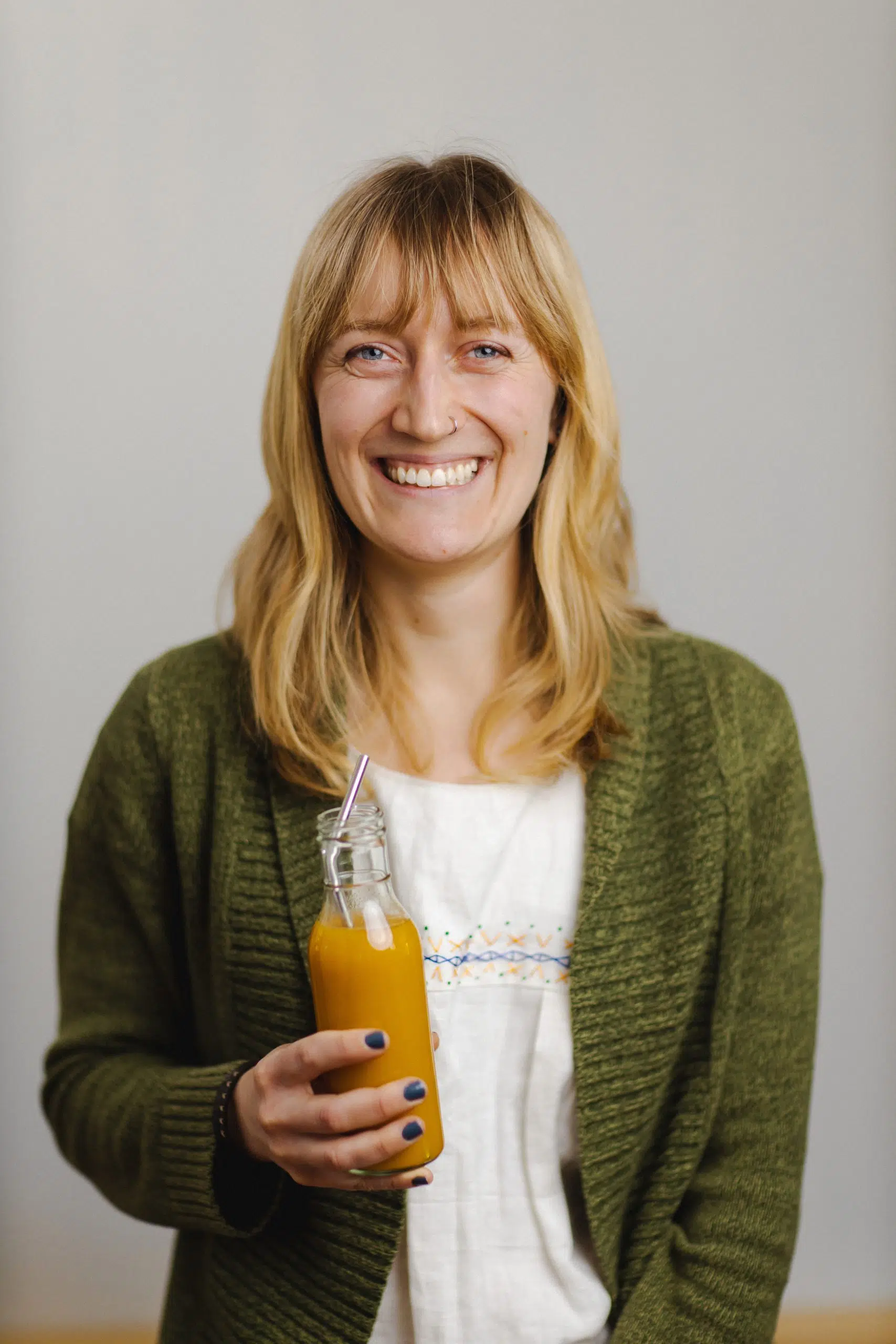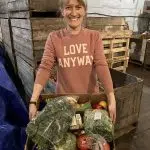
LifeDirt owner Miriam Westin with of this week's box orders (Image: Judith Mattie)
Mobile green grocer and raw juice producer, LifeDirt is open for orders this week. Owner Miriam Westin says the inspiration for LifeDirt developed when she was brainstorming ideas last summer after leaving her position as manager of Catapult Café in Saint John.
“My boyfriend and I were talking about different ideas that could be beneficial to the community, but would also be something pretty basic that I could start out with and really meet a basic need – so we started talking about the idea of the grocery store,” said Westin.
Last fall Westin took the Enterprising Women training program offered by the Saint John Community Loan Fund and decided to pursue the juice bar element of the business plan she created.
“I wasn’t having a good fall and was feeling pretty down,” she said. “It felt very healing to be making these juices that have fresh fruits and vegetables.”
LifeDirt did trial batches of juices in January and was officially incorporated on March 7. Orders can be placed on its website with food packs starting this week and juice sales beginning next week.
“One of the things that I really wanted to do with this was to connect people with nature and I think that there is a way to do that through food, through having some sort of connection with what we’re putting in our bodies every day,” she said.
Westin is focused on deliveries and pick-ups of food packs and juice, but is thinking of selling LifeDirt’s juices at one of Saint John’s local markets in the future.
- LifeDirt juices (Image: Judith Mattie)
- LifeDirt vegetables (Image: Judith Mattie)
- LifeDirt owner Miriam Westin with of this week’s box orders (Image: submitted)
LifeDirt’s food packs are made with as many local vegetables as possible from local growers and farms, including Evergrow’in Produce in Roachville, Elmridge Farm and Noggins Corner Farm in Nova Scotia, and farms from Sussex and Montreal.
Her business plan includes having some of her food packs subsidized, offering opportunities for people to donate money to buy food packs for other people and working with uptown businesses and local non-profits involved in food security initiatives.
Westin says her passion for social justice, and desire to do good with, (and for), others, led her to cultivate a more empathetic perspective to doing business.
“With the abundance of fruits and vegetables that grow on our Earth, it doesn’t make sense that not everyone has access to it,” said Westin. “I’m just trying to figure out how to make these things and how to make food accessible to people, and also be sustainable.”









